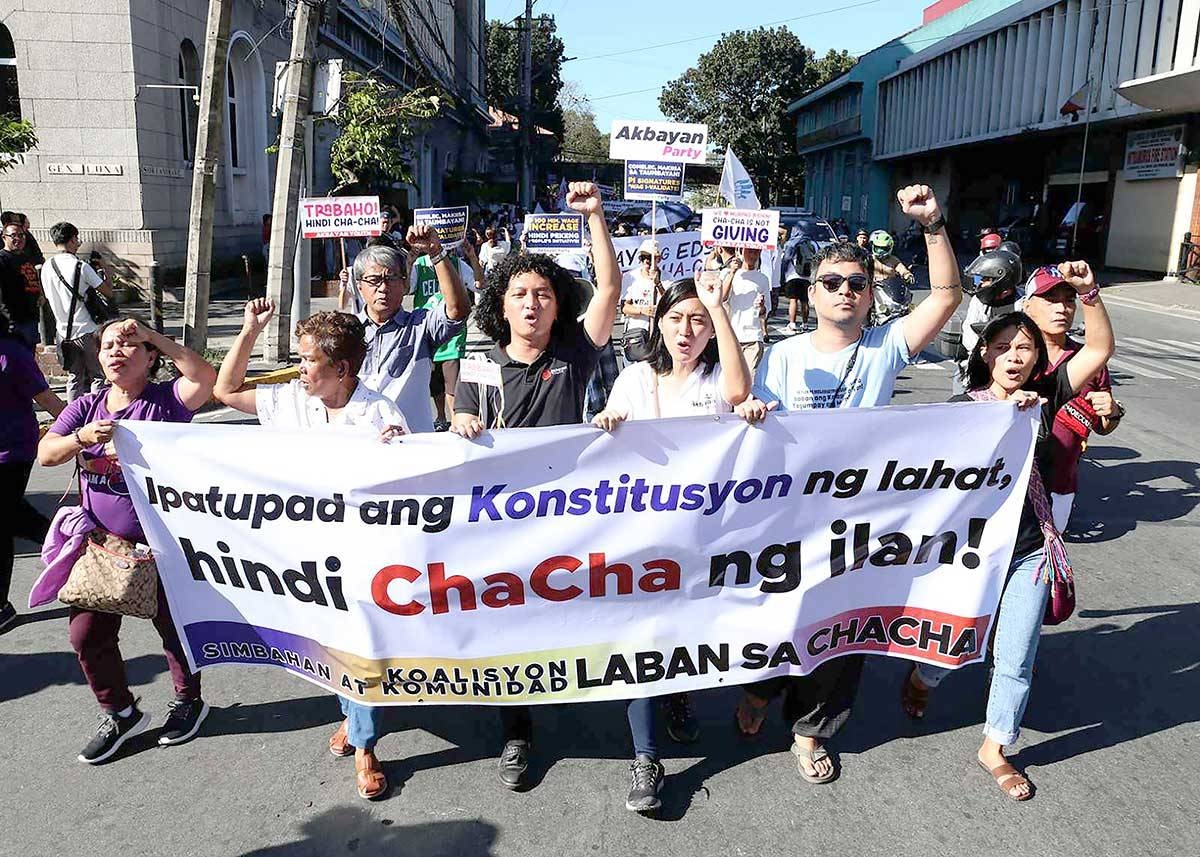Senior Deputy Speaker Aurelio “Dong” Gonzales Jr. recently addressed the issue of whether the House of Representatives and the Senate have to vote jointly or separately on amendments to the Constitution. Gonzales, who represents Pampanga’s third district, stated that the Constitution is silent on this matter.
According to the 1987 Constitution, any amendment or revision to the Constitution can be proposed by the Congress with a three-fourths vote of all its members or through a constitutional convention. Additionally, the Constitution allows for direct proposals of amendments by the people through initiative, provided that at least 12 percent of the total number of registered voters sign a petition, with each legislative district represented by at least three percent of the registered voters therein.
In line with these provisions, Gonzales, along with Deputy Speaker David “Jayjay” Suarez and House Majority Leader Manuel Jose “Mannix” Dalipe, filed Resolution of Both Houses (RBH) 7, which seeks the same amendments as RBH 6 filed in the Senate.
Gonzales clarified that the phrase “each House voting separately” is not explicitly stated in the Constitution. He emphasized that the House of Representatives chose to adhere strictly to the language of the Constitution, without adding or subtracting any words.
Responding to concerns about potential conflicts between the two chambers, Cagayan de Oro City 2nd District Rep. Rufus Rodriguez, chairman of the House Committee on Constitutional Amendments, confirmed that each chamber will be voting separately on the measures filed in each chamber. This ensures that there will be no standstill in the process.
Gonzales further assured the public in a video statement that a bicameral conference will be held to reconcile any differences between the versions passed by the House and the Senate. This conference will provide an opportunity for both chambers to discuss and resolve any conflicting provisions.
The Senate has already begun deliberations on RBH 6, while the House of Representatives has scheduled hearings on RBH 7, treating it as a committee of the whole.
Both RBHs aim to amend Article XII (Section 11), Article XIV (paragraph 2 of Section 4), and Article XVI (paragraph 2 of Section 11). The proposed amendments include adding the phrase “unless otherwise provided by law” to the provisions and inserting the word “basic” before “educational institutions” in the first sentence of paragraph 2, Section 4 of Article XIV.
It is important to note that RBH 7 does not include the clause “each House voting separately,” which is present in the Senate version. House Deputy Majority Leader Jude Acidre clarified that this phrase is not explicitly mentioned in the Constitution and is the Senate’s interpretation.
In conclusion, the voting process for amendments to the Constitution is an important aspect of the ongoing discussions. While the Constitution does not explicitly state whether the House of Representatives and the Senate should vote jointly or separately, the House has chosen to adhere strictly to the language of the Constitution. The bicameral conference will provide an opportunity for both chambers to reconcile any differences and ensure a smooth and effective amendment process.
Source: The Manila Times








